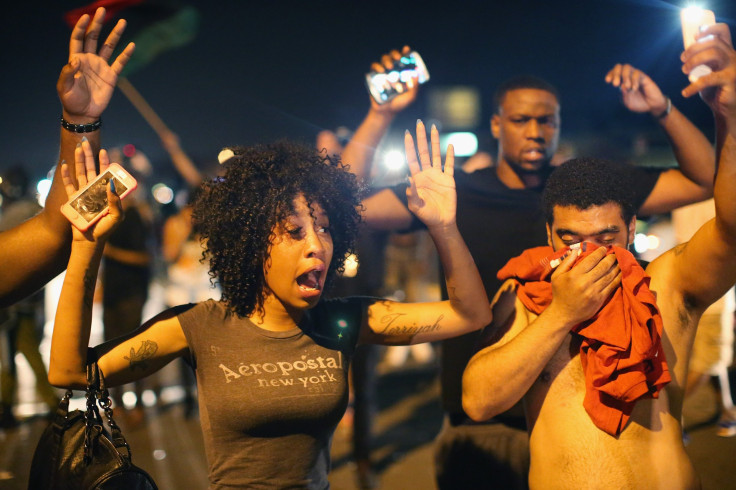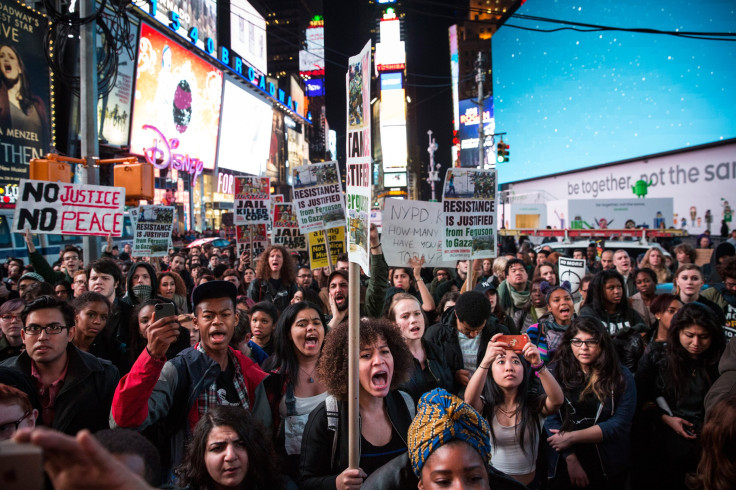Police Are Deleting Smartphone Videos At Crime Scenes Even Though It’s Illegal

LOS ANGELES — In the early hours of April 13, 2015, in a residential neighborhood in south Los Angeles, police arrived outside the home of Alex Jimenez, a 35-year-old man who was experiencing severe "emotional issues," according to Luis Carillo, an attorney now representing Jimenez's family. By the end of the night, he was dead.
What happened that evening is still shrouded in mystery, but according to a lawsuit filed against the Los Angeles Police Department in late April, one of the responding officers placed Jimenez in handcuffs, pushed him to the ground, Tasered him and held him down with a knee to the neck. Witnesses said Jimenez was screaming in Spanish, begging officers not to take him away. Then, according to the lawsuit, he began "to vomit, turn blue, and ultimately die."
The coroner concluded the ultimate cause of death was drugs in Jimenez's system, not the restraint or the Taser shock. But what happened next is casting the official narrative in doubt: A witness recorded the incident on a cell phone. But the LAPD took him down to a police station, where officers took his phone and deleted the video permanently.
The LAPD has not publicly released any internal report or investigation into what happened on the evening of April 13, 2015, and they have not responded to claims that video was deleted or destroyed. Carillo expects the case to go to trial, and a key point will be whether or not the LAPD officers, who are unnamed in the suit, intentionally destroyed the video evidence of what took place that evening.

If the video did indeed exist, and police officers intentionally deleted it, that would be illegal (and unconstitutional), says Peter Bibring, director of police practices at the American Civil Liberties Union of Southern California.
“There’s no question that it’s legal to record an officer in the context of his or her duties if you’re in a place where you’re lawfully allowed to be and recording is otherwise legal,” he says. “The Constitution protects people’s right to record police.”
To be sure, it's no great secret that more and more people around the country are recording police arrests and interactions with their phones. Just enter the term “police brutality” into YouTube and see for yourself. Page after page documents police officers Tasering, tackling and body-slamming people who don’t seem to be presenting much physical threat at all. As one recent Mother Jones magazine headline exclaimed, “Another Day, Another Sickening New Video of Police Brutality.”
The smartphone has altered dozens of aspects of our lives, from how we consume our news, to how we meet our dating partners, to how we order our Chinese food deliveries. They have also added a powerful source of evidence at crime scenes. In many communities, the smartphone itself has become a symbol of resistance against police brutality. When the lawmen show up, many witnesses do one thing: They pull out the phone, and click “record.” And federal courts have recently backed up a citizen's right to do just that.
In this manner, cell phone video have recorded the deaths of both Eric Garner and Walter Scott, two unarmed black men who died at the hands of police, and whose cases received national attention.
Theoretically, video footage from a police body camera could have offered some insight into what happened to Jimenez that evening. In fact, the LAPD is in the midst of negotiating a $57 million contract with Taser International to outfit nearly all of its officers with cameras. But the LAPD body camera deal has become bogged down as city officials have balked at the price tag, and the cameras have yet to be deployed.
The witness in the Jimenez case has chosen to remain anonymous out of fear of retaliation, Carillo says. The lawyer also notes that the video may have been uploaded to Facebook (and then deleted) but so far, he says he has been unable to retrieve the video from the cloud. If he can retrieve the footage — and somehow show that police intentionally deleted it — it would obviously be a big coup for the case.

And if that's what indeed happened, this sort of evidence tampering is hardly an isolated incident, according to Hamid Khan, a Los Angeles activist who works closely with families of victims of police brutality. Khan says he’s begun hearing more stories of police deleting more cell phone footage of interactions with officers.
“Evidence tampering and witness harassment is nothing new,” Khan says. “Historically speaking, the tradition and manipulation of tampering with evidence has been going on since we can remember. The question is, how will the department respond to it?”
But it's not just the LAPD that's been accused of deleting cell phone videos. While there are no definitive national statistics on how often police have erased cell phone videos, there are plenty of anecdotes and lawsuits to back up this belief.
In 2014, for instance, a man in Buffalo, New York, recorded an alleged instance of police brutality and was promptly ordered by officers to delete the video. “He told me give me your phone, or delete the video or I’m going to take your phone as evidence,” the man told Buffalo news station WIVB. In Grand Rapids, Michigan, a 21-year-old college student charges that undercover police officers beat him brutally in a case of mistaken identity. Part of the lawsuit, filed earlier this year, asserts that officers on the scene ordered several bystanders to delete their videos of the beating.
But perhaps the most extreme example came last year when a U.S. marshal in California grabbed a phone from a woman who was recording police, smashed the phone to the ground, and then kicked it. The interaction was captured by a third party, whose video went viral online, and the U.S. Marshals Service launched an internal investigation into the confrontation.
Bibring, the ACLU attorney, says it's absolutely legal to film police officers in their line of duty, as long as the person taking the video is not interfering with the officer and his or her duties. He says it is legal for the officer to take the video footage if the officer thinks there's probable cause to believe that the person will destroy evidence that exists on a tape, but in a case like this, it would be a violation of due process to take someone's phone away and delete the video.
“An officer who takes a witness's cell phone and deletes video footage from it is breaking the law and almost certainly violating their department’s policies,” Bibring says. “That’s serious misconduct. It’s a due process violation, they’re taking your property, and it’s also a destruction of evidence and violating due process rights.”
He says that while many officers around the country have become more accustomed to cell phone recordings, there are invariably instances in which officers ask witnesses to stop recording or even demand video be deleted. It was with that situation in mind that the ACLU developed and Mobile Justice in 2015, a smartphone app that allows people to record interactions with police.
A key feature of the app, Bibring says, is that once the user finishes recording, the video is automatically sent to the local ACLU office — precisely to prevent a police department from deleting it.
© Copyright IBTimes 2025. All rights reserved.






















